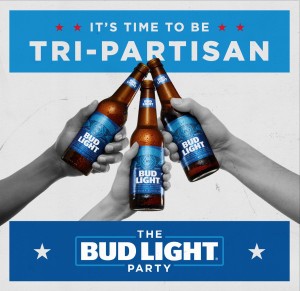What Lil’ Flip Could’ve Been For Houston Hip Hop
In this time of hip hop music, the Houston infrastructure has been a profound influence in terms of the delivery of this genre’s music. From the obsessive rhymes of pouring 4s to records slowed down to 60 BPM, it’s safe to say that Space City is in the forefront of contemporary hip hop. While the influence may be huge, the city’s shooting stars haven’t received the same love as the subject matter they’re known for speaking of. At one point in time, it wasn’t like this — Houston was at the center of the world and one of the main contributors to the city’s success was Lil’ Flip.
Aside from the Swisha House meteor that struck mainstream media, the mid-2000s was a time when Lil’ Flip was finally earning his well-deserved stripes and garnering the attention of fans across the world with hits such as “Game Over,” “Sunshine,” and “Like a Pimp.” While on his way to stardom, he ran into a plethora of problems due to conflicts with T.I. during the prime of his career and going independent at the wrong time, ultimately leading him to lose his position as one of H-Town’s prominent figures. Today, a lot of people look at Flip for what he once was, but this time around it’s time look at Wesley Eric Wetson, Jr. as the man he could’ve been for Houston.
Let’s turn the clock back to the mid-90s. This was a formative time for the city’s hip hop scene. You had the likes of UGK emerging into nationwide sensations with “Ridin’ Dirty” making it to No. 15 on the Billboard US 200 in 1996. Scarface reigned supreme as one of hip hop’s brightest with songs such as “Smile” featuring 2Pac, and the Screwed Up Click were just getting their movement together with the release of Fat Pat’s Ghetto Dreams in 1998. During this time, when Houston was building the strong foundation that it’s now known for, Lil’ Flip was just sowing his oats in the music scene as the self-titled “Freestyle King” when he was hanging out with the infamous Botany Boyz. A young Flip at this time, he was searching to find his signature sound and ended up as the versatile southern wordsmith that made him famous.
As the attention of DJ Screw continued to grow throughout this time, this garnered attention that would propel such artists as Lil KeKe, Big Pokey, Big Moe, and the emerging legacies of these artists transcend into the new generation of SUC MC’s like Z-RO, Trae the Truth, and Lil’ Flip.
Now, let’s look at Flip’s unique aspects:
1. He was young. At the age of 18, he carried the aura of a seasoned vet in the local scene with selling countless tapes and making it known he was a lyrical threat in the city.
2. The subject matter he spoke about was different from others who were apart of SUC. While most of the members were speaking on drinking “Barre” and riding in slabs, Lil’ Flip was the first representation of “Floss Rap” in the city with releases like “The Way We Ball” and “I Can Do That.” He used the “Big Boy Balling” characteristics of UGK and modernized it to another level.
During the era where Cash Money Records introduced “Bling Rap” to mainstream airwaves, Flip used this to the best of his advantage and poured the signature Texas-flavored sauce all over it. This blend was one that propelled Flip into the prime of his career and put him in the position of being H-Town’s shining star. From reaching the top of the Billboard charts with hits such as “Sunshine” and “Game Over” to having his song “Like a Pimp” become one of the opening tracks in the feature film 2 Fast 2 Furious, Flip was crossing over into mainstream media. While outsiders witnessed Flip’s ascension, this was also the start of his decline.
The roadblock that Flip hit on his long journey to stardom was due to his beef with Atlanta rapper T.I. During this time in their careers, both artists were able to help one another and that originally the plan. They were supposed to do a feature together, although it turned into a situation where Flip ended up insulting an imprisoned T.I., saying he wasn’t the real “King of The South.” After this incident, T.I. was released and delivered a memorable performance at Atlanta’s annual summer festival, Birthday Bash. After taking the stage and performing some hits, he addressed the issue of Flip talking behind his back and even called out Flip to come to the stage. As the no-show ensued, T.I. and his camp pulls out posters of Flip dressed in a leprechaun suit. Not thinking he embarrassed him enough in front of the sold out crowd, T.I. uttered the words, “P*ssy N***a I’m the leader of the troops, you just following suit. I got a question for anybody following you/What kind of n***a take a picture in a Lucky Charms suit, with a lollipop and some leprechaun boots?”
This beef ultimately put a dent in Flip’s credibility and pushed a decline in his sales, as well as damaging the legacy he was en route to realizing. Aside from the perception of him taking a loss, this puts one in the mindset of what could’ve happened for him. In a sense, it could’ve been a stem of possibilities that would not only help Flip and his career, but it could’ve done more for the city and the South.
For example, Lil’ Flip and T.I. working together at this time could’ve made the connection between the Atlanta and Houston music infrastructure stronger. This could lead to incorporating Houston’s screwed up vibes aligning with the crunk rhythm that Atlanta is known for. Not only could it blend it the sounds together, but it could’ve established a new hierarchy of Houston when it came to artists. Since Flip came out before Slim Thug, Paul Wall, and Mike Jones, he could’ve been a mentor in terms of breaking into the industry the proper way and help maximize on the opportunity of helping the city, as opposed to doing it for individual reasons.
Something to remember is that Pimp C was set to be released from prison around this time. Pimp’s homecoming was not only a matter of bringing everyone together as he did on records like “Knockin’ Doorz Down,” but there was potential for a hierarchy where the South reigned supreme. With Pimp’s influence, he could have used Flip and T.I. as his main contemporaries/heirs to the Southern throne, similar to the way that Gucci Mane did for artists like Young Thug, Peewee Longway, Waka Flocka Flame and others. These things might have turned into assets to further Pimp’s career and allow him not to only make a foundation for himself but for those who came after him.
Aside from his downfalls and mishaps, Lil’ Flip has made himself an “Urban Legend,” in terms of being a polarizing figure for Houston and the South and making music like it hadn’t been done before. The edginess of his raps and the glamour of his style are dynamics that made him the artist we know him as today, but one can only wonder what that artist would’ve done to take his efforts further than he did. The myth of Lil’ Flip is a provoking thought within itself, but one thing you can know for sure that he’s still is the “Platinum artist” with the “Platinum smile,” and he would still “ball out of control” and his shoes will still be “reptiles.”









